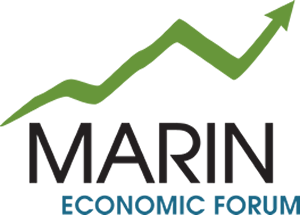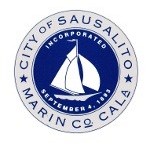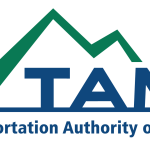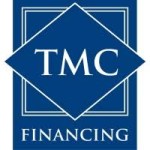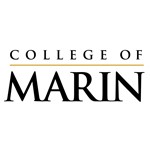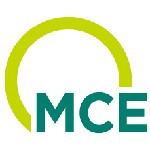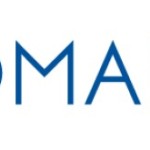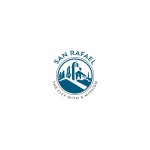Marin Economic Forum’s new leader looks for answers
North Bay Business Journal
By Gary Quakenbush

Marin Economic Forum CEO Robin Sternberg
In nine months on the job, Marin Economic Forum CEO Robin Sternberg is already zeroing on areas key if Marin is to continue to prosper.
“Marin has a workforce shortage, economic inequity, a housing shortage and other factors that influence our ability to grow and prosper,” she said. “Demographic changes are also impacting the region. MEF — with county of Marin’s support — can play a role in developing a plan that focuses on a vision and how we should direct investment to ensure future economic success while maintaining our unique and special assets.”
Sternberg served previously served as the senior economic development adviser on the American Jobs Project at University of California, Berkeley.
Prior to that, she was the deputy commissioner in the Department of Employment and Economic Development for the state of Minnesota, where she managed more than $180 million in programs, and also served as executive director of a jobs initiative program for Minnesota.
Sternberg said major issues in communities face are often discussed in silos when what is needed is an integrated, cross-discipline plan that involves a long-term view.
“The goal is to imagine an exciting future and a roadmap to get there,” she said. “We have strengths and concerns, but what we don’t want to do is leave ourselves open to risk worker or business flight because people can’t afford to live — and work — here. We need to attract and keep younger workers and not segregate the population. The ultimate goal is to maximize the local workforce potential across the board.”
Under her watch, the forum is working with College of Marin and Workforce Alliance of the North Bay to make sure we have opportunities for students to find employment and stay in Marin.
“I’ve been doing outreach among business, community and educational organizations and the consistent theme is a two-fold issue of finding and retaining employees,” Sternberg said. “I come from Minnesota where people also enjoy a high quality of life with an infrastructure that places emphasis on education and training.”
She said getting people to and from work and child care providers is harder here, which can create a tipping point in terms of quality of life given the costs associated with commuting and spending too much time off the job away from home.
“The train has definitely helped. Everyone I know that uses SMART loves it, including downtown business workers,” Sternberg said. “It is a step in the right direction. But we also need to find ways to expand our infrastructure to include greater access to transit and walkable communities. Affordable last-mile connections are still an issue here.”
She said the forum is also looking at the housing shortage, its real cost to employers and its contribution to Marin’s serious inequity problem. Sternberg believes the organization will need to increase its capacity to take on bigger issues.
“Our main thrust is having the necessary resources to better align MEF’s work with the county and to more clearly define the role we should play. In order to produce meaningful outcomes, we need additional funding. Other regions’ EDOs (economic-development organizations) have four or more times the public funding for this important function.”
Today, Marin Economic Forum has two full-time employees and a contract economist, Robert Eyler of Sonoma State University. It received a grant from the Workforce Alliance of the North Bay to hire a temporary project manager. Sternberg plans to approach the county with a request for funds that would enabling the forum to bring two more people on board, improve our staff structure and move out of crisis mode.
“We are getting a lot of support from employers, our towns and the Chambers of Commerce in Marin.”
She also sees that we have an opportunity to strengthen our public/private partnerships to solve problems that each sector cannot achieve on its own.
“Such partnerships were part of the overall culture in Minnesota, and I believe we should be doing more of this here as an all-hands-on-deck approach to address our needs,” Sternberg said. “MEF’s primary interests include business growth and improving the economy.”
Sternberg admits the forum still has a long way to go to realize its true potential within the county’s various communities, when it comes to elevating the partnership conversation.
The organization has targeted five categories of industry groups where Marin has a competitive advantage with an opportunity for increasing gross domestic product through domestic sales and exports: biotech, tourism, health care, food and agriculture, and education.
“We have to ask ourselves, what do we want for tomorrow?” Sternberg said. “It would be interesting to look at what our economy will look like if the average age is 55-year-old versus 45-year-old. People’s desires change and it will be important to allow for what younger individuals and families want. Collectively, the county has to make intentional choices when it comes attracting workers, providing places for them to live and making it possible for them to stay here. It’s fascinating work and I enjoy talking about and making plans for a better economic future.”
Be the first to receive updates and news from MEF by subscribing or liking us on our social media pages on Facebook, Twitter, and LinkedIn!
Full North Bay Business Journal Article Here
Tags: news
